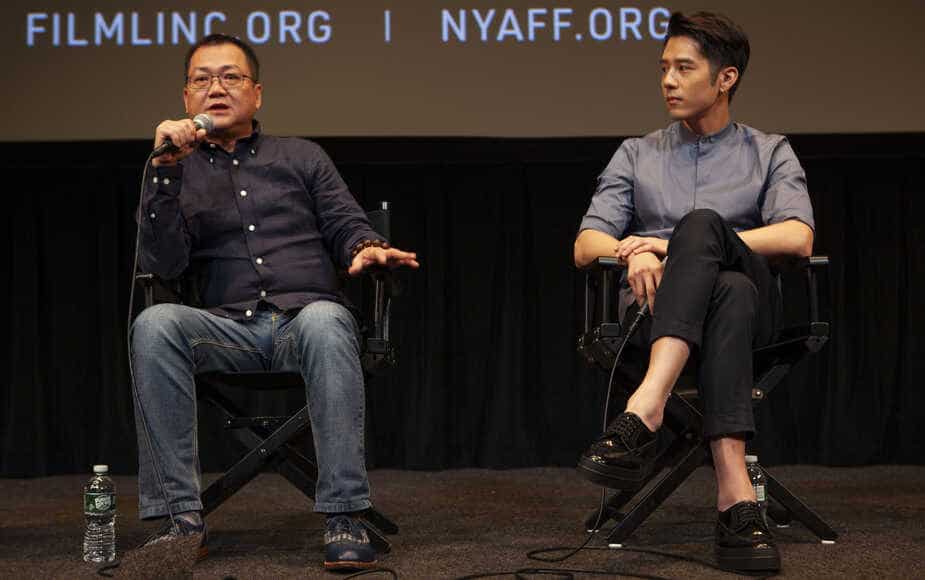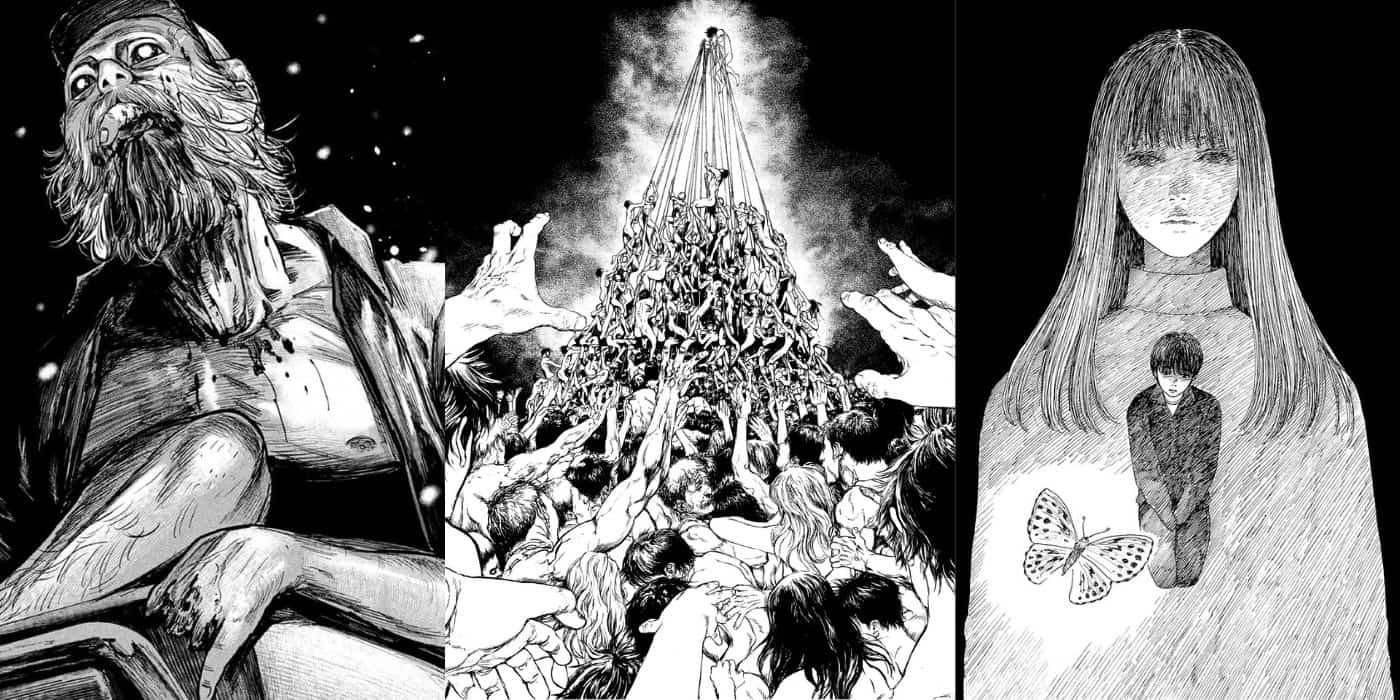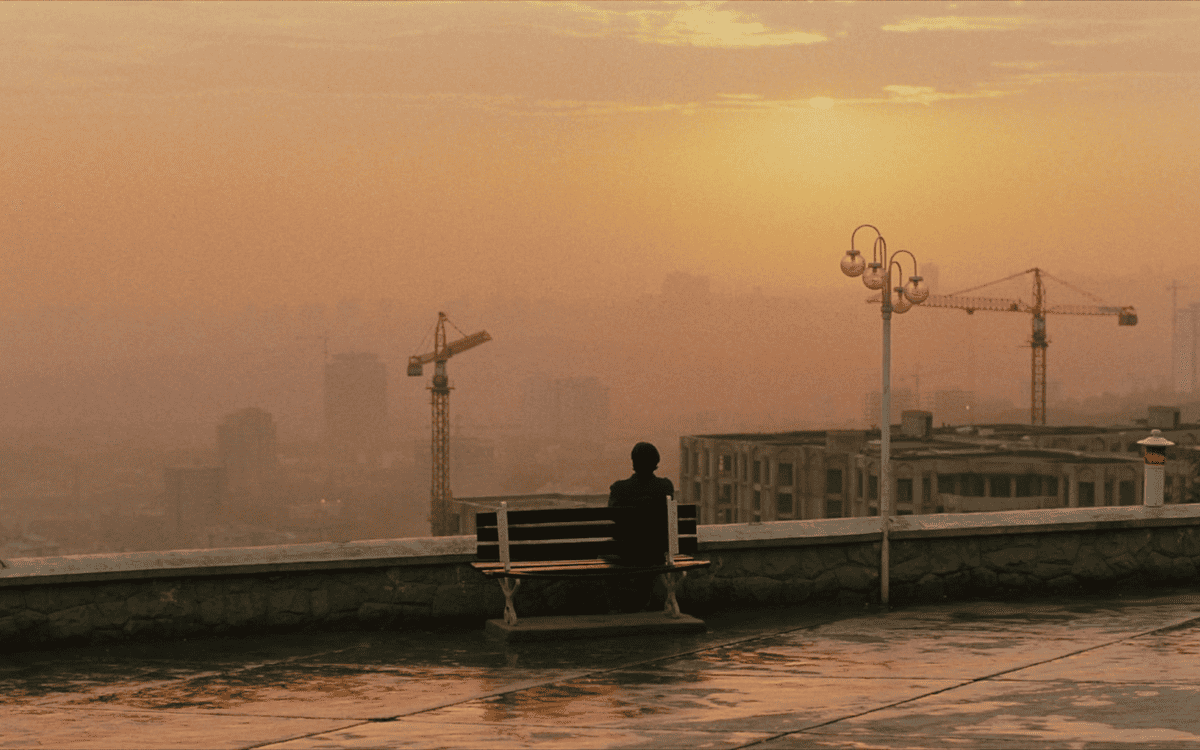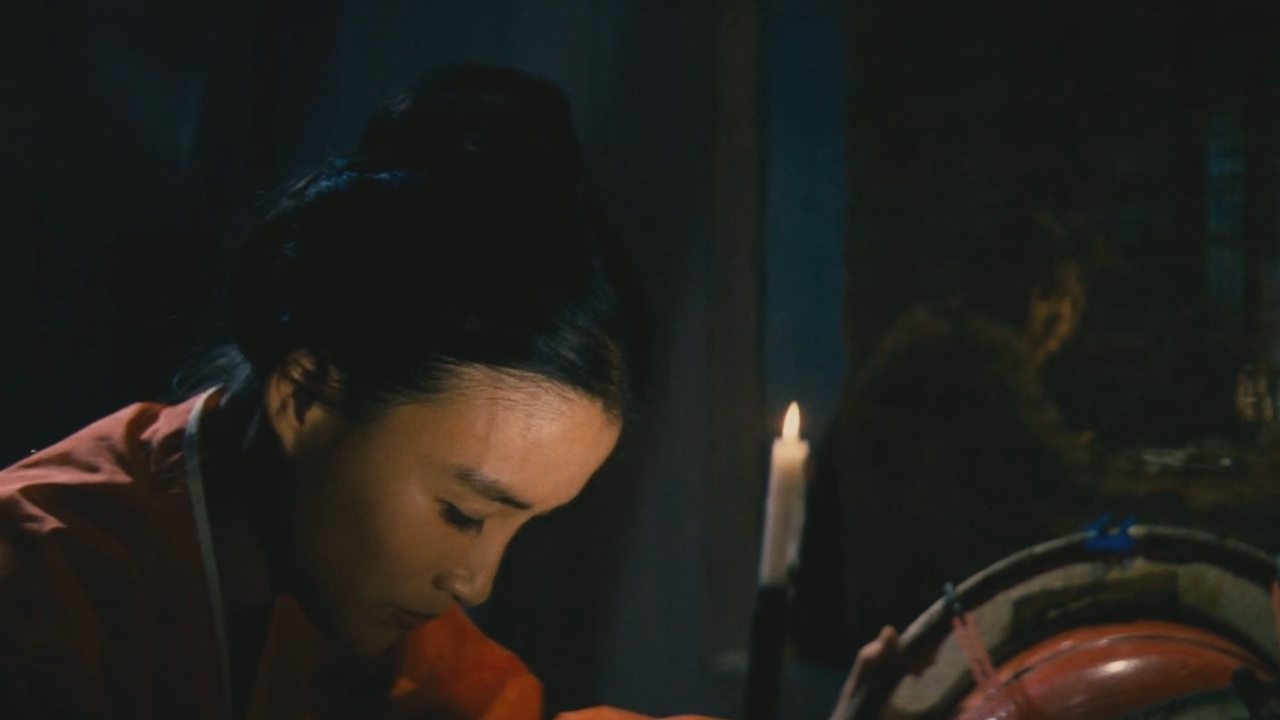As much as we wanted to sit down and talk to Naoki Murahashi at PÖFF (the Tallinn Black Nights Film Festival), where he attended all screenings of his mockumentary “Extro”, it was impossible to find a translator to assist us. When we were okayed to send the questions per E-mail, the answers came back in Japanese. And although the journey to this publication took the incredible three months, it was worth our while.
When the translation finally reached Asian Movie Pulse, there was an apology right at the top coming from Mr. Murahashi personally: “I am sorry that due to my poor English, I wasn't able to respond to your questions back in Tallinn”. His answers, on the other hand, were not apologetic, but straight to the point, and uncompromisingly honest.
The real star of “Extro” is a film extra by the name of Kozo Haginoya, a man in his late 60's who is slowly joined by other extras of different true professions along the plot. It's a film that mocks many aspects of the film industry without being mean, and the way the roles get reversed is adorable. The stars are in the background, the “invisible” cast comes into focus. We wanted to know the origin of this idea, and who the lead man Haginoya actually is.
Who is Kozo Haginoya in real life?
He is a farmer. Just a few days ago, the rice from the rice fields shown in the movie was sent to me. His original profession is being a farmer and dental hygienist – no gimmick here, and the same goes for the name. However, the role of his son is played by a real actor, and the woman in the film is not his wife, so here and there are moments when reality intertwines with fiction.
In real life, Mr. Haginoya has been aspiring to become an actor since he was a young man, but never had the opportunity of turning acting into his profession. He has been passionate about performing for more than 60 years and continues to act as a hobby in a local theater company called “The Market of Creativity” (the same theater company that appears in the film). He's actually not doing extras, but the desire to play and to be filmed is real. In the middle of the story, there is the scene where he says: “I'm happy if I can be seen on the screen for a moment”. Although this line is actually scripted, I genuinely believe that his true feelings are being reflected here.

Mr. Goto wrote the original script with a completely different name and profession, but after deciding to have Haginoya-san as the lead, I came to the conclusion that it would be better to use his real name and profession as it is, so I modified the script. One might call “Extro” a mockumentary, but in order to shoot a “good mock”, you need to have real thoughts, words and actions that are unique to the person in question. Thus, I decided to shoot a documentary for him. I didn't give him many direct instructions in acting, but indirectly instructed the actors around me to adapt the candid-camera footage. Mr. Haginoya also performed while mixing bits from his real life and those written in the script.
Some very prominent people from the Japanese film/ music landscape act in the film: Hirohito Gotô, Yasufumi Terawaki, Koji Yamamoto… How was their reaction on the film concept?
Mr. Yamamoto did not know much about the documentary and came to the first meeting without even asking what the contents were. When I explained the gist to him briefly, he understood it very well and was passionate about it. He improvised at the spot for around an hour without any cuts. In the field where such improvisation is required, his first impression was wonderful.
As for Mr. Terawaki's scene, I followed the script. He plays the role of a man named Yasufumi Terawaki written in the script as an actor. However, there is one exception. Near the end, there is a scene where a woman named Nagamine, an extra that trips over, and that was actually a real accident. Mayumi Akemi, who played that part, had the guts to continue playing, covered in blood, and I also continued shooting to respond to it. Mr. Terawaki, hovewer, was really worried and he'd say: “Stop rolling the camera and call an ambulance”. What he's saying there is for real. Who knows, he might have despised me for not switching the camera off. Everyone enjoyed these peculiar situations when the camera was not pointed at them, which sometimes can be a good thing.
It's impossible for an occidental person to know how much truth hides behind Tatsuya Ishii's (a famous singer/songwriter) story about his hit “Funk Fujiyama”. Actually, is there any real connection between him and Haginoya?
It's all invented and scripted by Goto. In the script there was only Funk Fujiyama, but Ishi's context was quite similar. The lyrics are hysterical and he's been improvising this for a long time. That part was not included in the film due to its length, but the whole crew was laughing out loud on the film set.
Concerning Tatsuya's relationship with Haginoya, that was intended to be a spoof, but the singer's older sister and Haginoya's relatives were close friends in elementary school. Also, before the Komme Komme Club became famous, Haginoya went to his live concerts, so it turned out that there was some kind of connection. It's a truth born out of a lie.
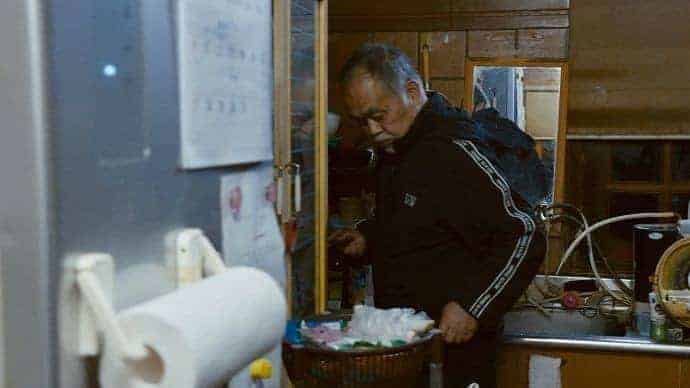
Was it your idea to generally mock the whole film industry and its self-centered nature by picking one profession that literally nobody ever talks about?
I usually direct dramas on NHK. I often shoot national dramas, called Taiga Drama, and I met many extras during the time when I was the assistant director. It smells of drama where people who have nothing else in common except for the purpose of shooting, gather, such as a dreamy young man who wants to be an action actor, a local lad who had enough of good connections in town, an old man who is a former large company president who enjoys shooting in order to start his second life, etc. I remember leaving out the boring assistant director job and observing them (what a bad assistant director I was!). Beyond 30 m, they're shooting brilliantly shining taiga drama, but I am staring at the background, where the lives of the nameless extras takes place. It can be said that this reversal of camera position gave birth to my work. I would like to do a one-act show with the extras at the location of the Warp Station Edo. So I approached Hiroto Goto and we started working on the scenario together.
When I met the people at the Tsukuba Mirai City Extra Dispatch Office, the relationship between them was interesting and peculiar. Real people are more interesting than inventing them in a drama. So Mr. Goto suggested that we should make a mockumentary. I really like good mockumentaries such as “This Is Spinal Tap”, and I wondered if I would be able to get closer to the extras' raw personalities. At least, that was what I wanted to do. Thus, this is the result.
Could you tell us something about the idea behind the legend of Ogamo the Great Duck and about how you visioned it clicking with the rest of the plot.
Before I started filming dramas, I was involved in programs that revolved around unidentified objects or supernatural powers. The scriptwriter Goto also liked that kind of stuff, and during the development of the script he was mostly talking about such stories. On the other hand, while researching for the scenario at the Warp Station Edo, looking around the set that reproduces the townscape of Showa period, a reverse movie with a monster character inside started crystallizing. That contributed to the creation of two mysterious existences Ogamo and Gamogedora – primitive space beasts invented by Goto.
One would almost think that you are not a huge fan of the Eda-period dramas because they inspired lots of awkward jokes. Can you elaborate?
I am not joking when I say that I love period dramas! There are homages to various classic Jidai Geki films, so if you like Jidai Geki, you will enjoy them too. You said it was a joke, but such occurrences actually happen on a daily basis! Mr. Goto deformed them considerably by putting in such extras that look obtrusive, extras that wait for hours under the cold sky due to directors and actors, extras that act strangely behind the camera, etc. It does happen. And while extras are not treated as humans at the set, which they are of course, sometimes problems occur. I intend to show feelings for those people's- and for the drama production set's sake.
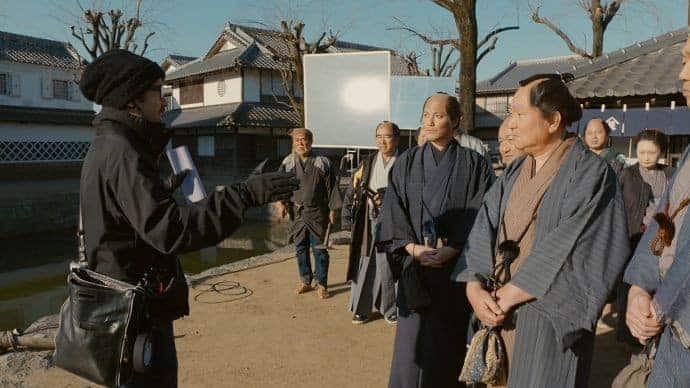
Particularly charming are your films in film and their B quality that comes across as very genuine. Do you have a personal connection to Japanese genre classics?
Both me and the scriptwriter, we love B-class movies. There is no more joy if “Extro” can be added to the history of beautiful B-class movies. My favorite monster movie is “Rikidoyama vs Astro Giant”. It's not strictly a monster movie, but I really like the scene where Rikidoyama (Japanese professional wrestler who swept the world) holding Tokyo tower in his hands and shaking it. I intend to put love for such genre films in the play “The Primitive Beast Gamogedora”.
If you were to make another mockumentary, what would it be about?
In Japan, there is a national, serialized drama frame called “Morning Drama Novel” broadcasted on NHK, to which I belong, which is viewed by 1/5 people, 15 minutes every morning. The heroines are selected after a range of meticulous auditions and upon that, their life as actresses will be guaranteed. The details of the audition are not revealed to the public and I think it might be very interesting for Japanese to have a look into it, and that's why I would like to shoot a documentary about it. I think that the best material for a mocumentary is in a place that people are curious about, but can't see it.
Actually, I have been writing a project at the NHK for several years before launching this movie plan, but every time I was trying to present it, I met anger: “Why would our company give out our precious spave to your frolicking bravado?”. If you broadcast a mockumentary on NHK, a highly reliable television station in Japan (the most trusted television station in Japan resisting fake news, reporting daily news and important events), it would be interesting and destructive at the same time. Let us remind of Orson Wells' radio broadcast of “The War of the Worlds”, which is said to be the world's first mocumentary. It caused chaos and some people fled, thinking that aliens had really attacked. At present, it is difficult to think about such a situation, but I think that by broadcasting a mocumentary on NHK, we can deliver excitement close to that. In that sense, I would prefer to do it on TV instead of shooting a movie.
In “Extro” you infiltrated criminals and police officers in the extra agency creating a crazy mash-up. What were you thinking when you diverted the focus from Haginoya and pointed it at many people at the same time?
The idea of diverting the focus came from Goto. In his script, he laughs it out, saying: “The person who was the first character will be forgotten (that is the reason the story accelerates after Mr. Haginoya's disappearance). Thus, what fulfills the small dream of the protagonist Mr. Haginoya as an extra is not in the script, but what went on at the set. For me, the meeting of various extras during the assistant supervision period was the starting point of the project, so I wanted to draw as many extras' vicissitudes as possible. Finally, the fact that the remake of the movie ‘Space Primitive Beast Gamogedora ” was included accidentally, gives me hope that the last scene I added might be a small salvation to the extras that I have “erased” in the process.



